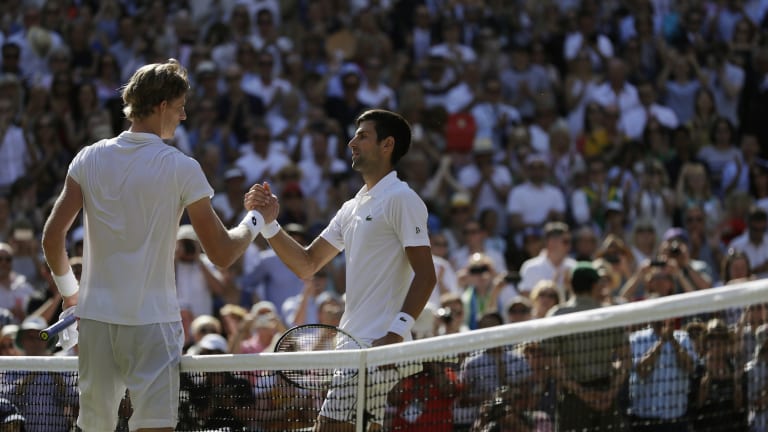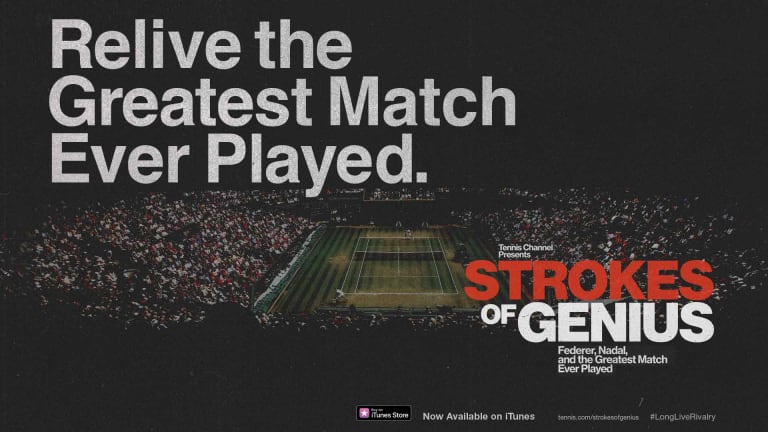LONDON— There is no higher honor for a tennis player than winning Wimbledon. It is the sport’s preeminent tournament, the Kentucky Derby of our game, and a grass-court festival played out across an incomparable fortnight when observers from every spectrum of life seem to be paying attention. “The Championships” are a singular happening, and most of the leading competitors place peaking for this event at the very top of their priority list.
That is clearly the case for the resurgent and ever charismatic Novak Djokovic. Today he took the title that means the most to him for the fourth time, securing a 13th major title in the process, winning his first tournament of 2018 as well. Djokovic cut down big Kevin Anderson 6-2, 6-2, 7-6 (3) with a supremely disciplined performance. Over the course of the three sets, Djokovic did not lose his serve, realizing that feat for the first time in his five final-round Centre Court appearances. He blitzed through the first two sets regally while a deeply fatigued and jittery Anderson had absolutely no spring in his step and not much opposition to offer, but the 32-year-old found life in his legs and a livelier arm during the third set. At last he made a match of it, although his gallant effort went unrewarded because Djokovic obstinately held his ground and refused to concede a set he seemed almost certain to lose.
Anderson, of course, had come through an arduous path from the round of 16 on, holding back the enigmatic Gael Monfils in a four-set, three-hour and 29-minute skirmish. He then pulled out a pair of harrowing five set matches to claim his place in the final, ousting eight-time and defending champion Roger Federer from two sets to love and match point down in the quarterfinals—taking that captivating contest 13-11 in the fifth set after four hours and 14 minutes. He then confronted John Isner in the penultimate round, prevailing 26-24 in the fifth set of a clash that lasted six hours and 36 minutes.
So this fellow had been through the mill. In those three matches combined, he was on court for 14 hours and 19 minutes. Some skeptics and even many of his most ardent admirers wondered if the 6’8” powerhouse might be so spent for the final that he would not even be fit enough to do more than go through the motions.
But Anderson, despite his inauspicious start— regardless of how beaten up he must have felt, no matter what kind of negativity was inevitably invading his mind—summoned immense willpower near the end and looked like an entirely different player in the third set than the exhausted individual who was crushed over the first two sets by both the excellent returning and the deadly accurate serving of the man who stood on the other side of the net.
WATCH—Championship point from Djokovic's win over Anderson at Wimbledon:

